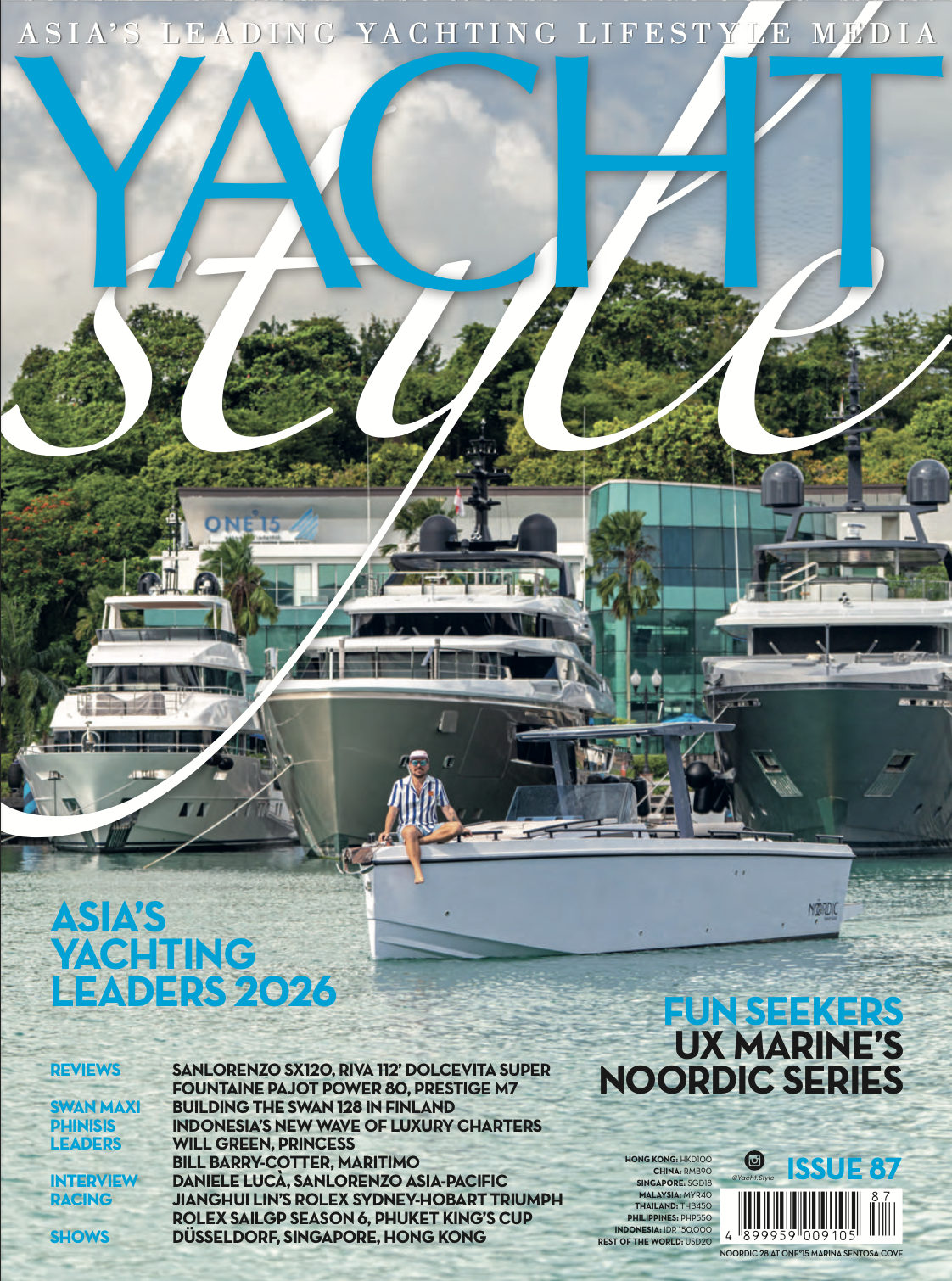Colin Dawson: Are you covered for yard time?
SHARE
In a Column for Yacht Style, yacht insurance specialist Colin Dawson outlines what to consider ahead of yard work, emphasising that preparation is key to keeping insurers onside.
Royal Hong Kong Yacht Club
All yachts will visit a yard, often each year. However, how many realise it’s important to have clearance from insurers before doing so? Most policies will allow for normal maintenance to be performed without the need to advise insurers, but not all. And how far can one go while still calling work ‘normal maintenance’?
Nearly all policies will require permission to be sought prior to agreeing to continue cover for anything that goes beyond normal maintenance and certainly in the event of any hot work. Different insurers will require varying levels of information, but where yard bookings can be difficult and need to be secured quite far in advance, it’s best to do your homework prior to singing a contract.
In my years as a specialist insurance broker for yachts, I have seen incredibly well prepared programmes. Recently in New Zealand, the captain discussed the work to be done with the yard well in advance, sought a yard with a fine reputation and a good level of Ship Repairers Liability (SRL) cover in place, and had a plan ready before the yacht entered the yard. Of course, there are also less well prepared programmes. In any case, try to remember the following:
1. Make sure the yard in question carries sufficient SRL cover. I would recommend at least the value of the yacht, but depending on the value, insurers may be flexible. I have known yards try to tell their clients they cannot get the cover over a certain amount. If the yard has a good reputation and a good loss record, this isn’t true and is generally because they don’t wish to spend the premium.
2. Make sure the yard’s SRL cover spans the whole period the yacht is there.
3. Discuss with the yard any subcontractors it may use and make sure the yard’s insurance includes them.
4.If intending to appoint your own subcontractors, check with the yard that this is allowed. If so, ensure these subcontractors have their own cover. Often a yard will require this.
5. Ask around, not just fellow captains but also your insurer, to ascertain the reputation of the yard.
6. Discuss with the yard its emergency procedures, especially fire and windstorm.
7.Discuss with the yard its security measures.
8. Discuss the project with your crew. For example, how will loose items on board be protected?
9. Try to get a slot away from a yacht that is having hot work and, if you can, away from one being repainted.
10. Obtain a full works list.
11. Most people should be aware that they can’t sign a waiver allowing a yard to back out of a claim against them. This is often specified in the yacht’s insurance policy. However, most waivers are hidden in the very small print and are couched in a language hiding the fact that they’re either partial or complete waivers. A better-quality yard will not look to hide such things or even have them. I once had a contract sent to me by a captain firmly telling me that he had not signed a waiver. On the contract, it was stated that terms and conditions were overleaf, but it had been scanned and sent without any of the ‘overleaf’ information appearing. The captain had blindly signed what he had been sent, missing the fact that many conditions including the waiver were on the part he hadn’t seen.
12. Make sure plans are made well in advance. Often an insurance broker is advised at 5pm on a Friday that a yacht is to be lifted the following day and needs to have an insurer’s permission. Usually this is accompanied by incomplete documentation with gaps in what insurers will require to note their agreement. (Of course, when insurers revert with queries, it’s always their fault!) If this is done in advance, there’s time to ensure all paperwork is correct to make it easy for insurers to agree, making them more disposed to being flexible if the need arises.
It’s worth remembering that last-minute advice, poorly presented requests and yachts looking to enter yards that are cutting corners or not looking after the best interests of the yacht owner raise other concerns with insurers. We are in a difficult yacht-insurance market and insurers have less capacity to offer, so are pickier with the risks they’re prepared to underwrite, and on what terms.
They’re being less flexible and are far more wary of risk than they were in the ‘soft’ market for so many years. One concern insurers have is if a yacht cuts corners with a visit to a yard, it’s likely to be cutting corners in other areas, leading to increased risk and therefore the likelihood of a claim. Signs this is happening are plain to see.
It should be remembered that it is an owner’s responsibility to do all he can to prevent a loss to insurers, or minimise one should an accident arise. If this is not done, insurers can query the amount they’re liable for in a claim. If you’re in any doubt at all, seek advice from your insurance broker – and remember the 5 P’s!
COLIN DAWSON
Managing Director of The George Group, Dawson has extensive experience in Asia-Pacific and has arranged covers for yachts around the world. Working in the marine insurance industry from 1990, starting with Lloyd’s, he has been based in Hong Kong since 1994 and specialised in yacht insurance since 1997. In 2009, he set up The George Group and began working alongside Expat Services, with Expat Marine established in 2011 and acquired by Howden in 2021. Founder of the Asia Pacific Superyacht Association, he was its first Chairman and is now an Honorary Life Member.
colindawson@tgg.com.hk / www.howdenhk.com





















